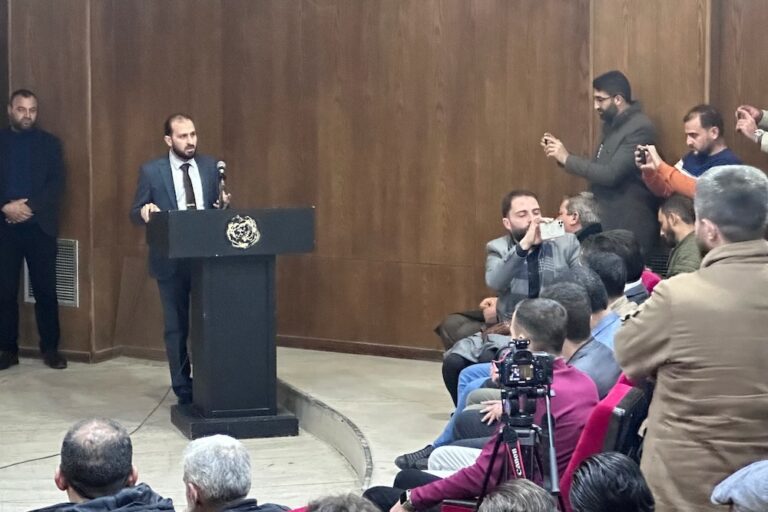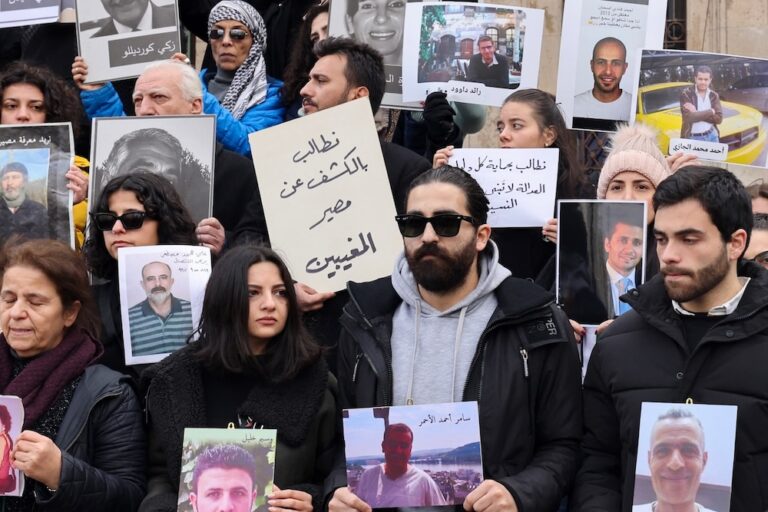Human Rights Watch urges the government to abolish the emergency law and introduce new laws to broaden political and civil society participation and guarantee freedom of expression.
(Human Rights Watch/IFEX) – New York, March 30, 2011 – President Bashar al-Asad’s speech on March 30, 2011, failed to commit to a specific reform agenda that would safeguard public freedoms and judicial independence and prohibit the Syrian government from encroaching on human rights, Human Rights Watch said today. The much anticipated speech was delivered before parliament.
Commentators and analysts had expected the president to announce specific reforms to increase public freedoms, including lifting the state of emergency, in place since 1963, following announcements by senior Syrian officials that his speech would “please Syrians.” However President al-Asad did not offer any specifics and only declared general support for reform.
“It’s extremely disappointing that President al-Asad has done nothing more than repeat the same vague promises of reform that he’s been uttering for over a decade,” said Sarah Leah Whitson, Middle East director at Human Rights Watch. “What’s needed immediately if the authorities are to restore any shred of credibility are concrete actions to dismantle Syria’s special courts and abolish provisions that criminalize free speech, assembly and association.”
Syrian authorities regularly rely on broadly worded “security” provisions in Syria’s Penal Code, such as bans on “issuing calls that weaken national sentiment” or “spreading false or exaggerated information,” to restrict free expression and detain and prosecute activists. Prior to the government’s latest crackdown, Human Rights Watch had documented the arrests of 92 prominent political and human rights activists since al-Asad’s ascent to power. The government has used its Supreme State Security Court (SSSC), a special court outside the ordinary criminal justice system that is exempt from most rules of criminal procedure, to try political activists.
Human Rights Watch also urged al-Asad to introduce new laws to broaden political and civil society participation and guarantee freedom of expression. In June 2005 the Ba’ath Party Congress recommended a law to allow formation of new political parties, but the government has failed to introduce a proposed law for that purpose.
Despite statements by Asma al-Asad, the president’s wife, in January 2010 that the government “wanted to open more space for civil society to work,” Syria’s security services continue to deny registration requests for independent nongovernmental organizations and none of Syria’s human rights groups are licensed. The main impediments to their registration is the 1958 Law on Associations and Private Societies (Law No. 93), which governs the establishment of any type of organization in Syria and authorizes the security services to refuse registration requests. The government has relied on this law to refuse to register independent organizations that may criticize the country’s human rights record or discuss political matters.
Syria’s press law (Decree No. 50/2001), promulgated on September 22, 2001, gives the government sweeping control over newspapers, magazines, and other periodicals, as well as virtually anything else printed in Syria, from books to pamphlets and posters. The government has extended these restrictions to online outlets, and the authorities have prosecuted journalists, bloggers, and citizens who dare criticize the authorities or the president.
( . . . )


